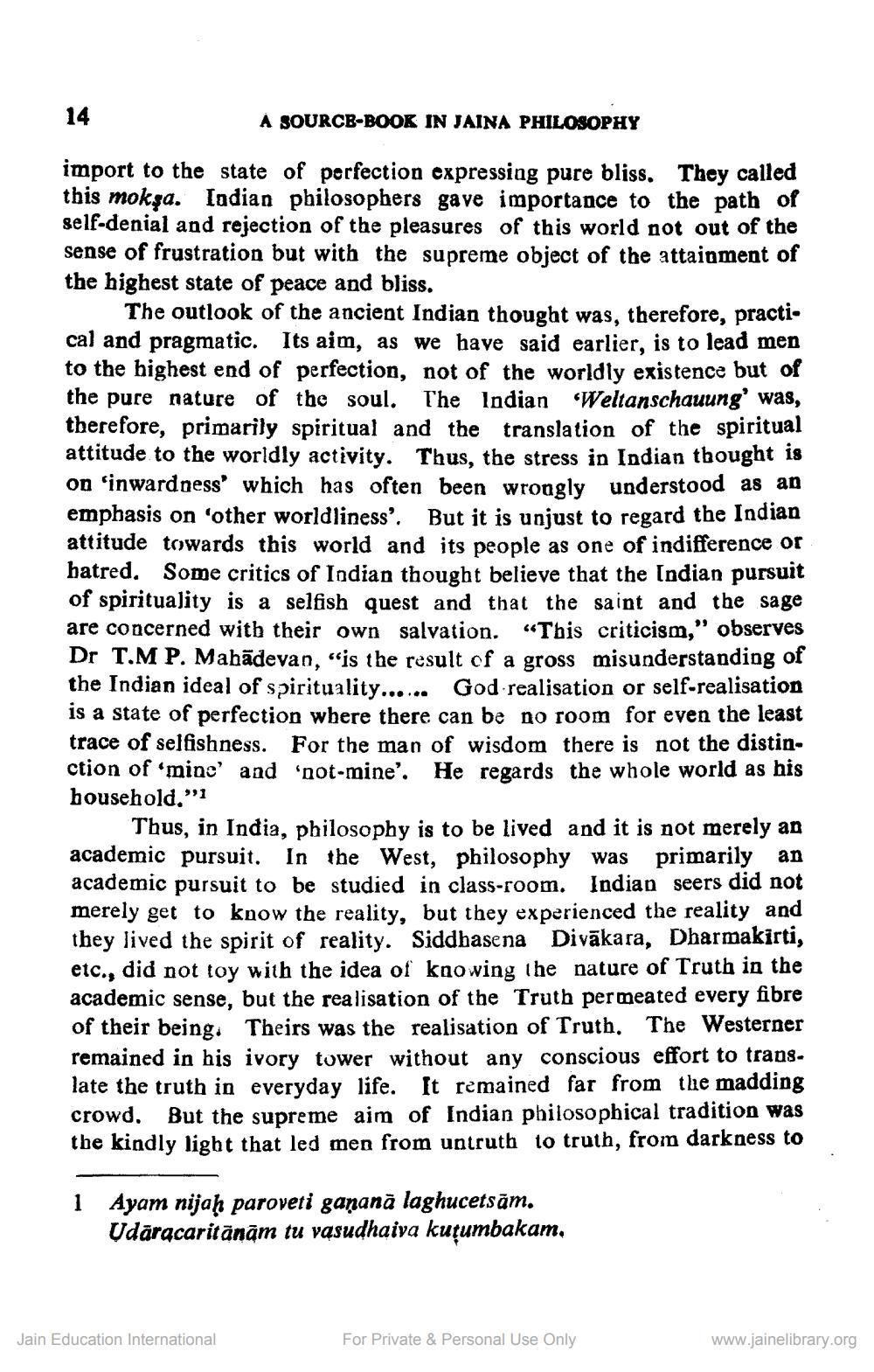________________
14
A SOURCE-BOOK IN JAINA PHILOSOPHY
import to the state of perfection expressing pure bliss. They called this mokşa. Indian philosophers gave importance to the path of self-denial and rejection of the pleasures of this world not out of the sense of frustration but with the supreme object of the attainment of the highest state of peace and bliss.
The outlook of the ancient Indian thought was, therefore, practical and pragmatic. Its aim, as we have said earlier, is to lead men to the highest end of perfection, not of the worldly existence but of the pure nature of the soul. The Indian Weltanschauung' was, therefore, primarily spiritual and the translation of the spiritual attitude to the worldly activity. Thus, the stress in Indian thought is on 'inwardness' which has often been wrongly understood as an emphasis on 'other worldliness'. But it is unjust to regard the Indian attitude towards this world and its people as one of indifference or hatred. Some critics of Indian thought believe that the Indian pursuit of spirituality is a selfish quest and that the saint and the sage are concerned with their own salvation. "This criticism," observes Dr T.M P. Mahadevan, "is the result of a gross misunderstanding of the Indian ideal of spirituality...... God-realisation or self-realisation is a state of perfection where there can be no room for even the least trace of selfishness. For the man of wisdom there is not the distinction of 'mine' and 'not-mine'. He regards the whole world as his household."
Thus, in India, philosophy is to be lived and it is not merely an academic pursuit. In the West, philosophy was primarily an academic pursuit to be studied in class-room. Indian seers did not merely get to know the reality, but they experienced the reality and they lived the spirit of reality. Siddhasena Divākara, Dharmakirti, etc., did not toy with the idea of knowing the nature of Truth in the academic sense, but the realisation of the Truth permeated every fibre of their being. Theirs was the realisation of Truth. The Westerner remained in his ivory tower without any conscious effort to translate the truth in everyday life. It remained far from the madding crowd. But the supreme aim of Indian philosophical tradition was the kindly light that led men from untruth to truth, from darkness to
1 Ayam nijaḥ paroveti gaṇanā laghucetsām. Udāracaritānām tu vasudhaiva kuṭumbakam.
Jain Education International
For Private & Personal Use Only
www.jainelibrary.org




